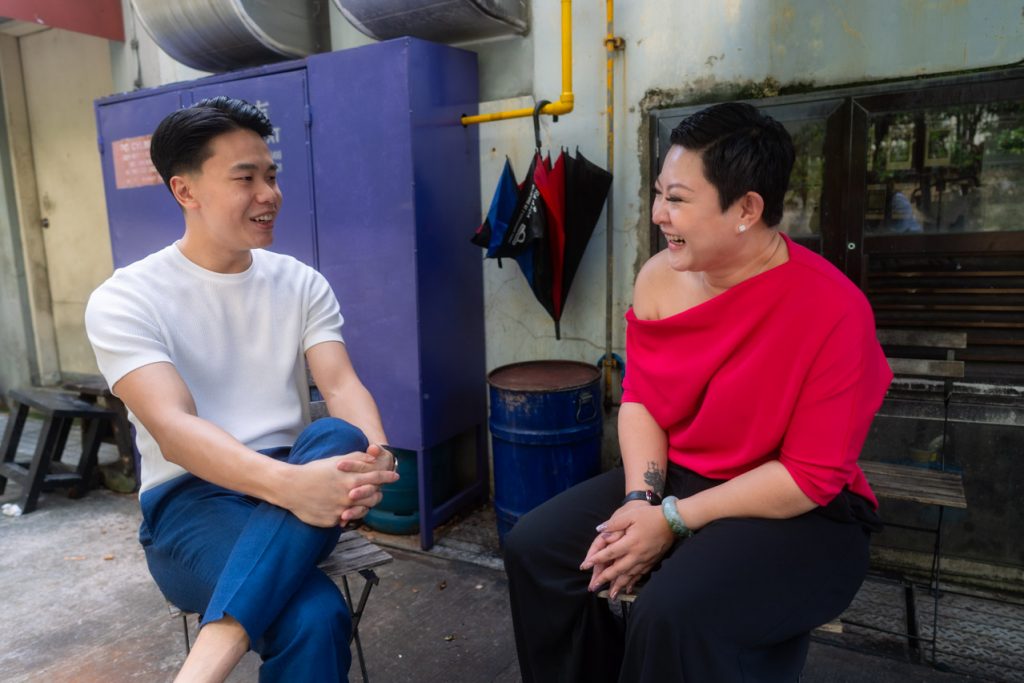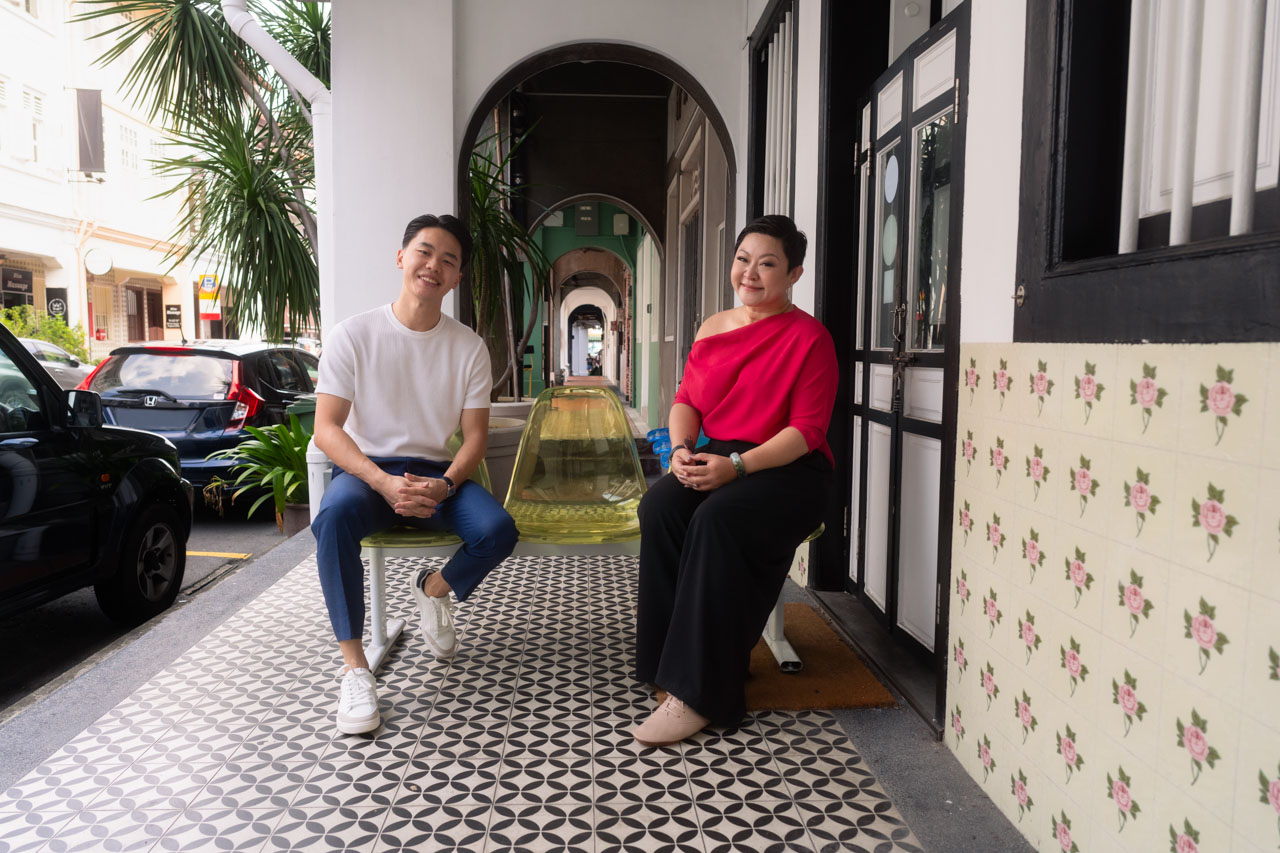All images by Stephanie Lee for RICE Media.
Insurance agents can be a friend in need or a pain in the ass.
It’s a pretty broad statement, yes. For some, their exposure to insurance agents begins and ends with a chance MRT station encounter. Like a fly, they’re swatted away at first contact. Unfortunately, that is the reaction most agents would get—being approached in a public space is, for some, even worse than getting a cold call from an old acquaintance.
The latter is how others may come to know an insurance agent in their lives: someone from a past life reaching out under the pretence of rekindling a friendship, pulling the rug under you to reveal a humdrum sales pitch. Sometimes, the jig is up even by the first phone call or message, and we tap out at the first sign we see or hear.
So, then, the ‘friend in need’ part? That’s obviously when—or, rather, if—you have an existing insurance plan with them, and you finally need to use it. But that’s a day any of us would pray doesn’t come.
The friends in our lives, especially the ones who matter the most, are there because we trust them. When it comes to finding the ‘right’ insurance agent, trust is mandatory. Maybe that’s why newer agents start with cold-calling friends: in this case, nothing’s better than capitalising on existing trust.
When I ask Eile Goh, an insurance agent of over 20 years, whether it’s difficult to build trust with her clients, she tells me straight up: “Look, I’m gonna do this for life. Whoever’s going to come through my doors, I want us to be like family until the day I’m no longer around.”
This also comes from someone who has only done “one roadshow” throughout her professional life. Cold calls? Forget about it. “All that freaks me out!” she confesses.
Of course, not every agent you’ll meet is as passionate and effusive as Eile. She might only be one of the few devoted to her profession on that level. Even that would raise eyebrows: Why on earth would you want to do that?
Surely, we all have had questions we wish to ask these insurance agents we pass by on the street. For those of us venturing to give them a chance—a clean bill of health is getting more expensive, and insurance starts to seem like a viable safety net—what do you ask them?
“Wah, this is food for thought, man,” she says. She doesn’t have a clue what a prospective client should ask—at first, at least. With Eile and another insurance agent—Dickson Soh, a younger agent with a few power-packed years under his belt—taking time to talk to me, I thought I’d take a stab at it myself.
The Agents
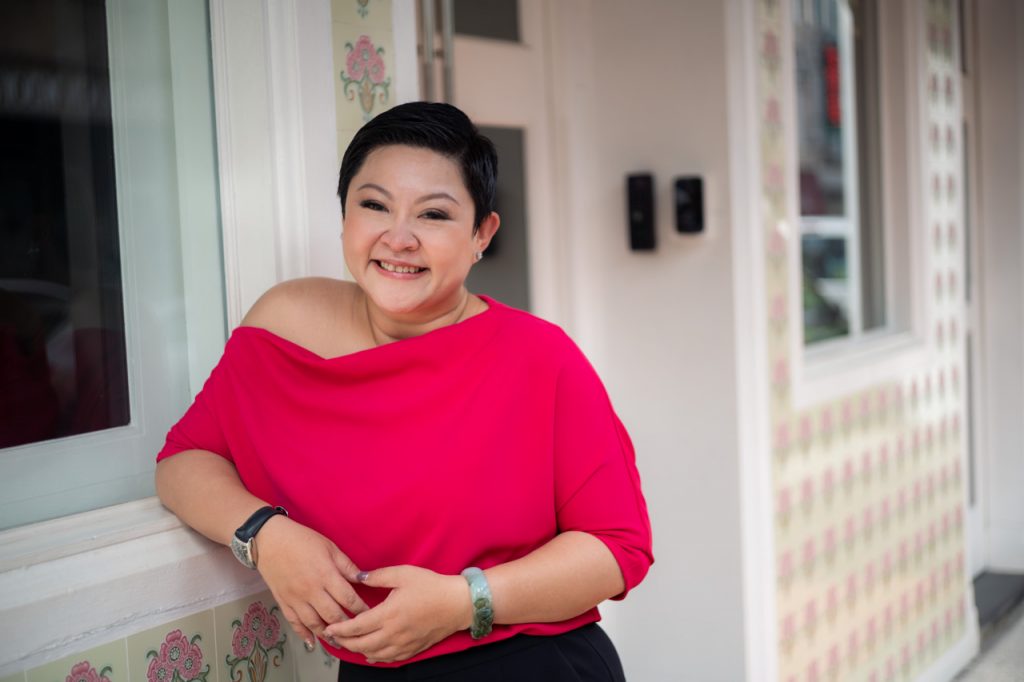
Eile Goh, 43
Insurance agent, motivational coach, ‘edu-preneur’.
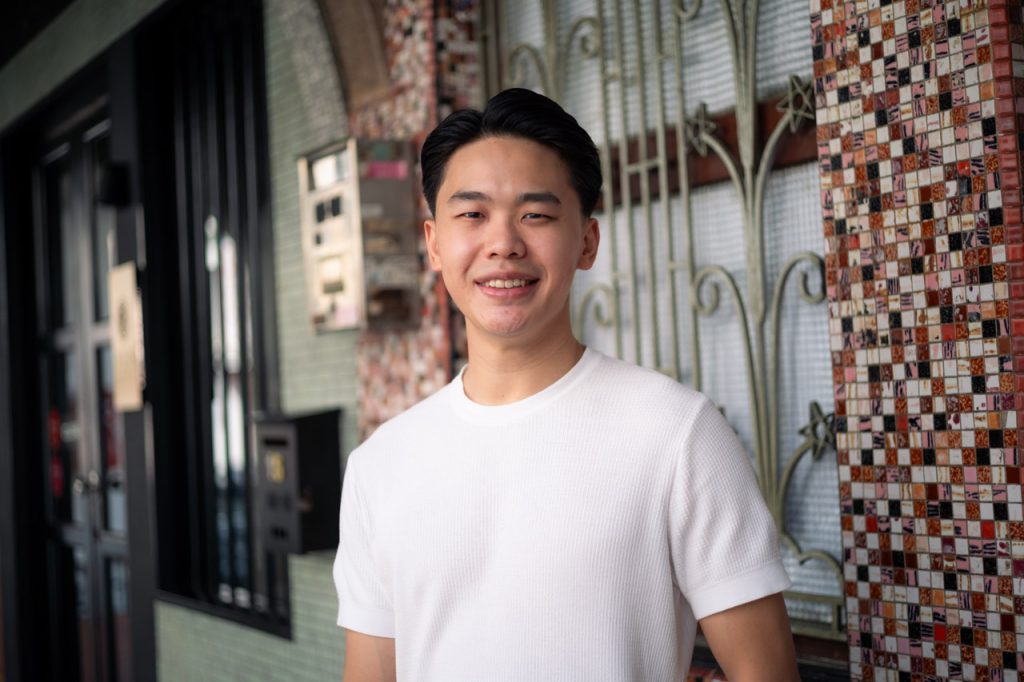
Dickson Soh, 29
Insurance agent, car dealership owner, casual fencing player.
What can you tell me about yourself as an insurance agent?
Eile: To be frank with you, 2024 is my 21st year as an insurance agent. I want this to be my breakthrough year. But I also want to make sure it’s the right clients I’m attracting.
I’m a work in progress. I’m still trying to bring my best self to the table every day. I intend to work with [my clients] for a very long time, and hopefully, they’ll feel the same. They keep me going! That’s my purpose for the job.
Dickson: My mum’s about to turn 60. She wasn’t very well-educated, and she did not know how to manage our finances [when I was a kid]. When I went into insurance, I was thinking that ‘If I learn how to manage my own finances, I would do better in life. And, maybe, I can spend more time with her in the future.’
From there, I was also hoping I could help manage her finances and hopefully change our lifestyles [for the better]. Now, I’m still growing, and I’m still learning. At least now I get to spend more time with her.
Why did you want to be an insurance agent?
Eile: I just think it’s nice to have someone to come and assure you when things are not so “glamorous”, like when you’re lying down on a hospital bed.
My best friend had an aneurysm a few weeks ago. *points to her head* She had to have her head sawed here, you know? It’s not funny. And once you hear anything neuro-related from the doctor, you can expect the bills to be crazy. She didn’t buy her shield plans from me. But because I know how this job works, I could already tell her how it’s going to go for her insurance before she could even speak to her agent.
Dickson: Being an insurance agent is my first full-time job. My uncle has been an insurance agent for over 30 years, and I always saw him as a mentor. He motivated me to join the industry. Over time, I’ve realised that—from helping others manage their own finances—I’ve applied these strategies to my own finances, getting me closer to that goal of financial freedom.
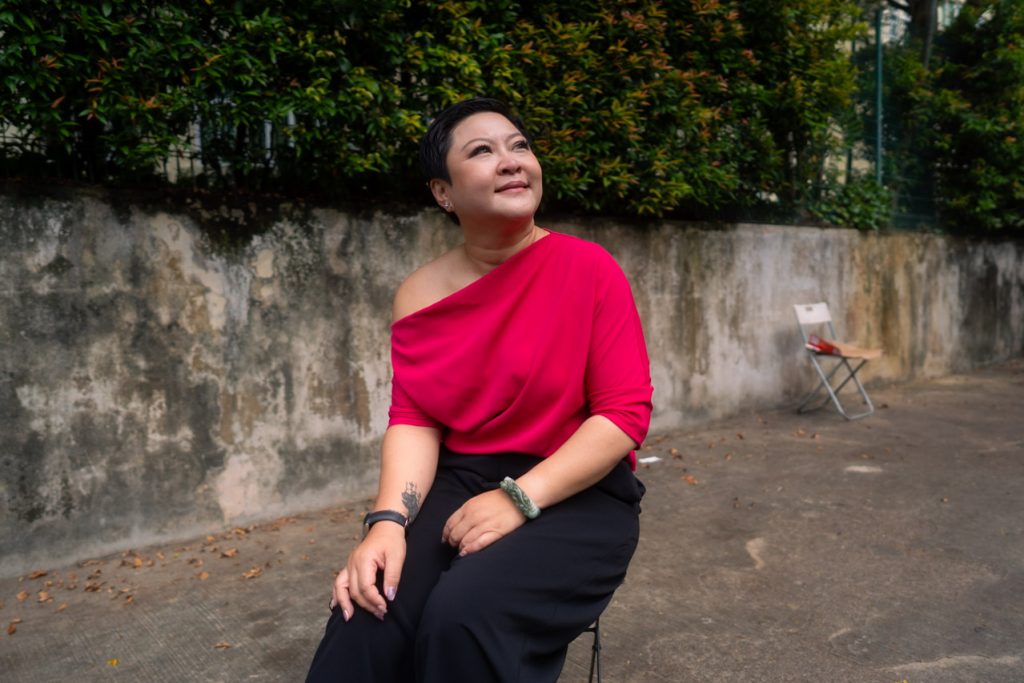
Why do insurance agents talk about ‘financial freedom’ so much?
Eile: A big bulk of the work that I do surrounds the theme of being happy. Being a Buddhist, that resonates with me: that the purpose of our lives is to be happy. Financial freedom to you, and to everyone else, may look very different. But I believe it is about the clarity that one needs in order to build a trajectory ahead.
To some, freedom is booking a business-class seat. To others, it means booking a coach to Malaysia. If there is happiness for you, there’s freedom for you. My job is to look at the numbers behind it. Our background in studying these things equips us with advice for you in case anything were to happen in the future.
Dickson: Basically, it’s about achieving the lifestyle you want. The ‘financial freedom’ that we sell to customers—or, rather, the dream that we help paint for them—is doable. Most of my clients are in their 20s, so I believe with proper financial planning, they will get there one day. I want to get all of them there one day.
Will you take my money and run?
Eile: No.
Dickson: No.
Thanks! To some, insurance sounds like a scam. Why is that so?
Eile: Early in my career, I was not so ‘clever’ in talking. That’s why I’m still so thankful for the people who gave me a chance and the opportunity to make mistakes. So [I work] with a grateful heart, to be open and say, ‘Hey, I’m here for this. I’ll be happy to serve you and your family.’ These days, we do the work like that. It’s not like, ‘Hey, you want to buy insurance?!’ anymore.
I was just talking to my mentee this morning. People tend to have negative connotations about insurance and insurance agents. I told her that when she meets people like that, it’s up to her to disarm them. It’s about asking yourself, “Are you even curious to understand what negative experiences these people have had with insurance before?” and how you are different from that.
Dickson: It’s a full commission-based business we work in. To consumers, they think that if I’m selling them something, I’m benefitting from them. “He’s trying to sell something so he can earn his commission.” They’re not wrong! But I earn commission because I’m sharing knowledge and expertise. I’m spending time giving you advice.
I see myself as a financial doctor. When you come to me, I’ll share with you my experience. I advise you on the steps you should take. If you proceed with my steps, that means you might benefit from me. And if you have, then you ought to pay me, right?
No, you don’t have to pay me. My insurance company will pay me right now. These days, it’s different. I’m not earning a commission from you. I’m earning a commission from my company.

Have people come up to tell you what they really feel about your job?
Eile: To be very frank, nobody dares to come up to me to tell me stuff like that. I’m a very loud and proud insurance person leh, a very dignified one. I do my work well!
Dickson: I once took on about ten months of working road shows. Until that period, I had never received that many rejections in my life. You will always hear these kinds of negative perceptions from people, like “Why are you here every day?” or “It’s so annoying to see you guys.”
One time, an uncle passed by our booth and said loudly, in Mandarin, “Aiyah, insurance people always bluff people money, lah.” I was working with people there who were more seasoned, and they decided to ignore him. I was new. I went up to him and asked what he was talking about. I sat down with him. We spoke for two hours. We pay for road shows, by the way, so technically, I was paying to spend time talking to him.
I did not win the debate. He still walked away thinking his previous insurance agent cheated him. The policy the agent sold to him did not pay out as much as he promised it would. To me, when we advisors do not do our due diligence, it will affect our clients.
How do you perceive earning money?
Eile: I believe in intentional living. At the end of the day, if you set your intentions and then you move towards that direction, you’ll get there. Even if you don’t get there fully, you can be halfway through, you know. At least, you must try.
As an insurance agent, most people only see the highlights on social media. They don’t see the moments we work late to close a deal or the crying in the MRT we do when we don’t have any leads. My confidence doesn’t stem from branded things and flexing on social media—I look for the love, the warmth, and the “realness” from people I work with.
Dickson: I grew up under a single working mum. We didn’t have much, but we always had enough. She raised me well, and I always appreciate her for that. But I’ve always thought that if I had more money, I could afford her a better lifestyle.
I meet clients who were born into more fortunate circumstances and clients who were not. Some of these people already enjoy life without a lot of money. So money is important, but not the most important thing. Achieving ‘financial freedom’ early just means spending more time doing things I love and with the people I love.
